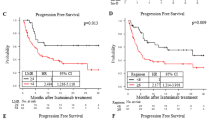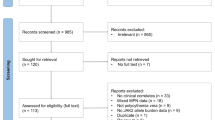Abstract
Introduction
Ropeginterferon alfa-2b represents a new-generation PEGylated interferon. It is approved for the treatment of polycythemia vera and shows promising anti-SARS-CoV-2 activities.
Objective
This clinical study aims to evaluate the efficacy and safety of ropeginterferon alfa-2b in patients with coronavirus disease 2019 (COVID-19) and comorbidities.
Methods
The randomized controlled study is designed to enroll adult patients with COVID-19 infection and comorbidities. Patients are non-responders to anti-SARS-CoV-2 drugs or not suitable to receive them. Comorbidities include hematologic cancer, solid tumor, and well-controlled autoimmune disease. Non-responders to anti-SARS-CoV-2 drugs are defined as having received treatment but have a Ct value < 30 at 14 days after symptom onset. Patients are randomized in a 1:1 ratio to receive ropeginterferon alfa-2b at 250 μg plus standard of care (SOC) or SOC alone. SARS-CoV-2 antigen test will be conducted at day 15 and day 29 visits to determine whether to administer additional ropeginterferon alfa-2b doses. Patients who are positive on the antigen test on days 15 and 29 will receive the second and third doses of ropeginterferon alfa-2b at 350 μg and 500 μg, respectively. Patients with a negative antigen test but a Ct value < 30 by reverse transcription polymerase chain reaction (RT-PCR) at days 15 and 29 are also administered the second (350 μg) and third (500 μg) doses. Patients at high risk of COVID-19 rebound/relapse, e.g., immunocompromised patients, will be given additional ropeginterferon alfa-2b doses even if the Ct is ≥ 30. Approximately 60 patients will be enrolled.
Planned Outcomes
The primary outcome is to compare the time from randomization to the achievement of Ct value ≥ 30 by RT-PCR between ropeginterferon alfa-2b and control groups. Our previous studies have shown safety and promising anti-SARS-CoV-2 activities in patients with moderate or severe COVID-19. This study will provide valuable data in patients with COVID-19 and comorbidities, for whom safe and effective treatment is urgently needed.
Trial Registration Number
This trial is registered at ClinicalTrials.gov (Identifier NCT05808322).

Similar content being viewed by others
Data Availability
Data will be available to external researchers upon reasonable request from the investigator and PharmaEssentia.
References
Fouchier RA, Kuiken T, Schutten M, et al. Koch’s postulates fulfilled for SARS virus. Nature. 2003;423(6937):240.
Woo PCY, Huang Y, Lau SKP, Yuen KY. Coronavirus genomics and bioinformatics analysis. Viruses. 2010;2(8):1804–20.
Cui J, Li F, Shi ZL. Origin and evolution of pathogenic coronaviruses. Nat Rev Microbiol. 2019;17(3):181–92.
Hu B, Guo H, Zhou P, Shi ZL. Characteristics of SARS-CoV-2 and COVID-19. Nat Rev Microbiol. 2021;19(3):141–54.
Araf Y, Akter F, Tang YD, et al. Omicron variant of SARS-CoV-2: Genomics, transmissibility, and responses to current COVID-19 vaccines. J Med Virol. 2022;94(5):1825–32.
National Institutes of Health. COVID-19 treatment guidelines. Last updated March 6, 2023. https://www.covid19treatmentguidelines.nih.gov/overview/clinical-spectrum/.
Hogan JI, Duerr R, Dimartino D, et al. Remdesivir resistance in transplant recipients with persistent COVID-19. Res Sq. 2022;rs.3.rs-1800050.
Carlin AF, Clark AE, Chaillon A, et al. Virologic and immunologic characterization of coronavirus disease 2019 recrudescence after nirmatrelvir/ritonavir treatment. Clin Infect Dis. 2023;76(3):e530–2.
Tian L, Pang Z, Li M, et al. Molnupiravir and its antiviral activity against COVID-19. Front Immunol. 2022;13:855496.
Cao Y, Wang J, Jian F, et al. Omicron escapes the majority of existing SARS-CoV-2 neutralizing antibodies. Nature. 2022;602(7898):657–63.
Akiyama S, Hamdeh S, Micic D, Sakuraba A. Prevalence and clinical outcomes of COVID-19 in patients with autoimmune diseases: a systematic review and meta-analysis. Ann Rheum Dis. 2021;80(3):384–91.
Yang L, Chai P, Yu J, Fan X. Effects of cancer on patients with COVID-19: a systematic review and meta-analysis of 63,019 participants. Cancer Biol Med. 2021;18(1):298–307.
Jang YS, Seon JY, Yoon SJ, Park SY, Lee SH, Oh IH. Comorbidities and factors determining medical expenses and length of stay for admitted COVID-19 patients in Korea. Risk Manag Healthc Policy. 2021;14:2021–33.
Koyyada R, Nagalla B, Tummala A, et al. Prevalence and impact of preexisting comorbidities on overall clinical outcomes of hospitalized COVID-19 patients. Biomed Res Int. 2022;2022:2349890.
Aboueshia M, Hussein MH, Attia AS, et al. Cancer and COVID-19: analysis of patient outcomes. Future Oncol. 2021;17(26):3499–510.
Salunke AA, Nandy K, Pathak SK, et al. Impact of COVID-19 in cancer patients on severity of disease and fatal outcomes: a systematic review and meta-analysis. Diabetes Metab Syndr. 2020;14(5):1431–7.
Venkatesulu BP, Chandrasekar VT, Girdhar P, et al. A systematic review and meta-analysis of cancer patients affected by a novel coronavirus. JNCI Cancer Spectr. 2021;5(2):pkaa102.
Anaya JM, Monsalve DM, Rojas M, et al. Latent rheumatic, thyroid and phospholipid autoimmunity in hospitalized patients with COVID-19. J Transl Autoimmun. 2021;4:100091.
Laracy JC, Kamboj M, Vardhana SA. Long and persistent COVID-19 in patients with hematologic malignancies: from bench to bedside. Curr Opin Infect Dis. 2022;35(4):271–9.
Lee CY, Shah MK, Hoyos D, et al. Prolonged SARS-CoV-2 infection in patients with lymphoid malignancies. Cancer Discov. 2022;12(1):62–73.
Garmendia JV, García AH, De Sanctis CV, Hajdúch M, De Sanctis JB. Autoimmunity and immunodeficiency in severe SARS-CoV-2 infection and prolonged COVID-19. Curr Issues Mol Biol. 2022;45(1):33–50.
Moran E, Cook T, Goodman AL, et al. Persistent SARS-CoV-2 infection: the urgent need for access to treatment and trials. Lancet Infect Dis. 2021;21(10):1345–7.
Helleberg M, Niemann CU, Moestrup K, et al. Persistent COVID-19 in an immunocompromised patient temporarily responsive to two courses of remdesivir therapy. J Infect Dis. 2020;222(7):jiaa446.
McNab F, Mayer-Barber K, Sher A, Wack A, O’Garra A. Type I interferons in infectious disease. Nat Rev Immunol. 2015;15(2):87–103.
Sadler AJ, Williams BRG. Interferon-inducible antiviral effectors. Nat Rev Immunol. 2008;8(7):559–68.
Qin A. An anti-cancer surveillance by the interplay between interferon-beta and retinoblastoma protein RB1. Front Oncol. 2023;13:1173467.
Contoli M, Papi A, Tomassetti L, et al. Blood interferon-α levels and severity, outcomes, and inflammatory profiles in hospitalized COVID-19 patients. Front Immunol. 2021;12:648004.
Hadjadj J, Yatim N, Barnabei L, et al. Impaired type I interferon activity and inflammatory responses in severe COVID-19 patients. Science. 2020;369(6504):718–24.
Zhang Q, Bastard P, Liu Z, et al. Inborn errors of type I IFN immunity in patients with life-threatening COVID-19. Science. 2020;370(6515):eabd4570.
Bastard P, Rosen LB, Zhang Q, et al. Autoantibodies against type I IFNs in patients with life-threatening COVID-19. Science. 2020;370(6515):eabd4585.
Ströher U, DiCaro A, Li Y, et al. Severe acute respiratory syndrome-related coronavirus is inhibited by interferon-alpha. J Infect Dis. 2004;189(7):1164–7.
Meng Z, Wang T, Chen L, et al. The effect of recombinant human interferon alpha nasal drops to prevent COVID-19 pneumonia for medical staff in an epidemic area. Curr Top Med Chem. 2021;21(10):920–7.
Zhou Q, Chen V, Shannon CP, et al. Interferon-a2b treatment for COVID-19. Front Immunol. 2020;11:1061.
Bhushan BLS, Wanve S, Koradia P, et al. Efficacy and safety of pegylated interferon-α2b in moderate COVID-19: a phase 3, randomized, comparator-controlled, open-label study. Int J Infect Dis. 2021;111:281–7.
Pandit A, Bhalani N, Bhushan BLS, et al. Efficacy and safety of pegylated interferon alfa-2b in moderate COVID-19: a phase II, randomized, controlled, open-label study. Int J Infect Dis. 2021;105:516–21.
Chen KY, Lee KY, Qin A, et al. Clinical experience with ropeginterferon alfa-2b in the off-label use for the treatment of COVID-19 patients in Taiwan. Adv Ther. 2022;39(2):910–22.
Feng PH, Liu WD, Cheng CY, et al. Ropeginterferon alfa-2b therapy for moderate to severe COVID-19: a phase 3, randomized controlled clinical trial. J Microbiol Immunol Infect. 2023 (under review).
US Food and Drug Administration. FDA approves treatment for rare blood disease: treatment is first FDA-approved option patients can take regardless of previous therapies. Nov 12, 2021. https://www.fda.gov/news-events/press-announcements/fda-approves-treatment-rare-blood-disease#:~:text=Rare%20Blood%20Disease-,FDA%20NEWS%20RELEASE,-FDA%20Approves%20Treatment. Accessed Jul 18, 2023.
European Medicines Agency. Besremi: EPAR-medicine overview. 2019. https://www.ema.europa.eu/en/medicines/human/EPAR/besremi. Accessed Jul 18, 2023.
Jin J, Qin A, Zhang L, et al. A phase II trial to assess the efficacy and safety of ropeginterferon α-2b in Chinese patients with polycythemia vera. Future Oncol. 2023;19(11):753–61.
Jin J, Zhang L, Qin A, et al. A new dosing regimen of ropeginterferon alfa-2b is highly effective and tolerable: findings from a phase 2 study in Chinese patients with polycythemia vera. Exp Hematol Oncol. 2023;12(1):55.
Huang CE, Wu YY, Hsu CC, et al. Real-world experience with ropeginterferon-alpha 2b (Besremi) in Philadelphia-negative myeloproliferative neoplasms. J Formos Med Assoc. 2021;120(2):863–73.
Verstovsek S, Komatsu N, Gill H, et al. SURPASS-ET: phase III study of ropeginterferon alfa-2b versus anagrelide as second-line therapy in essential thrombocythemia. Future Oncol. 2022;18(27):2999–3009.
Qin A, Urbansky RW, Yu L, Ahmed T, Mascrenhas J. An alternative dosing strategy for ropeginterferon alfa-2b may help improve outcomes in myeloproliferative neoplasms: an overview of previous and ongoing studies with perspectives on the future. Front Oncol. 2023;13:1109866.
Huang YW, Hsu CW, Lu SN, et al. Ropeginterferon alfa-2b every 2 weeks as a novel pegylated interferon for patients with chronic hepatitis B. Hepatol Int. 2020;14(6):997–1008.
Lin HH, Hsu SJ, Lu SN, et al. Ropeginterferon alfa-2b in patients with genotype 1 chronic hepatitis C: pharmacokinetics, safety, and preliminary efficacy. JGH Open. 2021;5(8):929–40.
Hsu SJ, Yu ML, Su CW, et al. Ropeginterferon alfa-2b administered every two weeks for patients with genotype 2 chronic hepatitis C. J Formos Med Assoc. 2021;120(3):956–64.
Chen CY, Chuang WL, Qin A, et al. A phase 3 clinical trial validating the potency and safety of an innovative, extra-long-acting interferon in chronic hepatitis C. JGH Open. 2022;6(11):782–91.
Huang YW, Qin A, Tsai CY, Chen PJ. Novel pegylated interferon for the treatment of chronic viral hepatitis. Viruses. 2022;14(6):1128.
Acknowledgements
We would like to thank study coordinators and nurses, and all other investigators and study participants in the study. We are grateful to the patients and their families.
Medical Writing/Editorial Assistance
The authors completed the writing and edition of the manuscript without any medical writing/editorial assistance.
Funding
This study, the journal’s Rapid Service Fee, and the Open Access Fee are sponsored by PharmaEssentia Corporation.
Author information
Authors and Affiliations
Contributions
All authors (W-DL, H-AH, K-JL, AQ, C-YT, and W-HS) contributed to the study conception and design. The first draft of the manuscript was written by W-HS, AQ and C-YT. All authors commented on previous versions of the manuscript and have read and approved the final manuscript.
Corresponding author
Ethics declarations
Conflict of Interest
Wang-Huei Sheng, Wang-Da Liu, and Ko-Jen Li declare no conflict of interest. Hsin-An Hou declares the honorarium, travel and research support from PharmaEssentia Corporation. Albert Qin and Chan-Yen Tsai work for PharmaEssentia Corporation.
Ethical Approval
The study is approved by the institutional review board of NTUH IRB (approval number 202302136MIPD) and follows the principles of the Declaration of Helsinki for all human experimental investigations. Informed consent will be obtained from all participating patients.
Rights and permissions
Springer Nature or its licensor (e.g. a society or other partner) holds exclusive rights to this article under a publishing agreement with the author(s) or other rightsholder(s); author self-archiving of the accepted manuscript version of this article is solely governed by the terms of such publishing agreement and applicable law.
About this article
Cite this article
Liu, WD., Hou, HA., Li, KJ. et al. Study Protocol of a Randomized Controlled Clinical Trial to Evaluate the Efficacy and Safety of Ropeginterferon Alfa-2b in COVID-19 Patients with Comorbidities. Adv Ther 41, 847–856 (2024). https://doi.org/10.1007/s12325-023-02715-7
Received:
Accepted:
Published:
Issue Date:
DOI: https://doi.org/10.1007/s12325-023-02715-7




